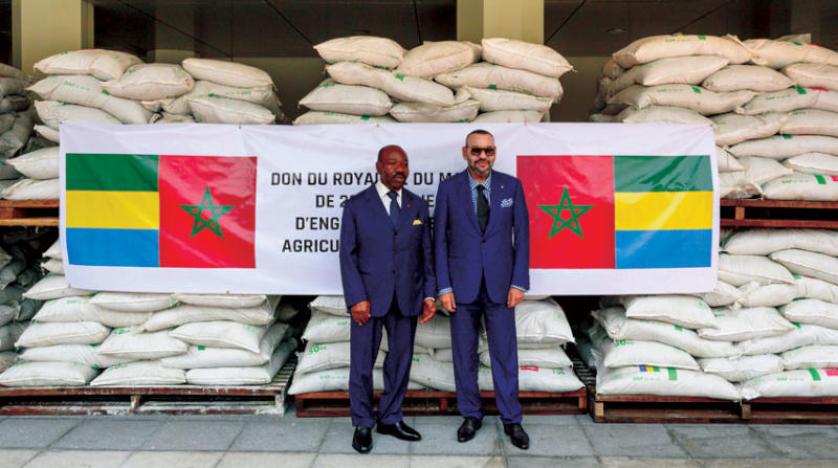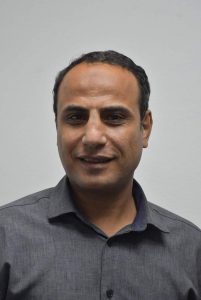Morocco has been focusing on enhancing its relations with African countries and increasing its influence on the continent recently. This has become a priority for the country due to several factors, the rise of terrorist organizations and organized crime networks in Africa, the decline of Western influence (especially French) in the region, and Rabat’s desire to counter its regional opponents in its African neighborhood. Additionally, Morocco seeks to enhance its international standing by playing a larger role on the continent.
As part of this effort, King Mohammed VI of Morocco undertook a tour of Gabon and Senegal on February 15th. The primary aim of the tour was to strengthen bilateral relations with these countries, Morocco had specific goals in mind. These included attracting African support for Moroccan policy on various issues, especially the Western Sahara conflict, and also garnering Western interest in improving relations with African nations in the aftermath of the Russian-Ukrainian war.
Continuous Movements
King Mohammed VI’s tour of Africa indicates a significant change in Moroccan foreign policy, as the country seeks to regain its presence on the African continent. This is apparent in the many visits made by the Moroccan monarch to develop bilateral relations in various fields and create wider opportunities for investment. Over the past 20 years, the king has visited African countries approximately 50 times, signing numerous agreements and memoranda of cooperation with these nations.
Morocco is focused on bolstering its developmental and humanitarian role within Africa, especially given recent changes on the international scene, such as the COVID-19 pandemic and the Russian-Ukrainian war. During King Mohammed VI’s visit to Gabon, Morocco provided a significant amount of fertilizer to help Gabonese farmers deal with the global food crisis. Additionally, Morocco has funded two projects in Senegal: the construction of a fishing village in Dakar and the establishment of a vocational training center in the Diame Diadio region, 30 km from the Senegalese capital. Furthermore, Morocco has provided humanitarian aid to numerous African countries affected by the COVID-19 pandemic, which has caused multiple crises across the continent.
Key Motivations
There are several reasons that prompt Morocco to strengthen its ties with African nations, as demonstrated by King Mohammed VI’s current African tour, which can be analyzed as follows:
- Enhancing Rabat’s Regional Status in Africa: King Mohammed VI’s tour is closely linked to Morocco’s efforts to boost its regional presence and solidify its position in Africa. The country is employing various mechanisms, such as grants, aid, and developmental projects, to achieve this goal. Undoubtedly, this is connected to the increasing status of the continent on the global stage, particularly in the wake of the Russian-Ukrainian war. This conflict has compelled many international powers to take a greater interest in strengthening their bilateral relationships with African countries.
- During his tour, King Mohammed VI is seeking to attract support from African countries for Morocco’s policy on the Western Sahara issue. Rabat aims to leverage its presence on the continent to isolate the Polisario Front in Africa and apply greater pressure there. This is especially important as the front has achieved significant presence in some periods, as seen in indicators such as the delivery of a message from the front’s leader by its special envoy Omar Mansour to the Mauritanian President Mohamed Ould Cheikh El Ghazouani on September 30, 2022. Notably, the two countries visited by the Moroccan monarch have taken supportive steps towards Morocco’s policy on the Western Sahara issue, such as Senegal, which opened its consulate in the Moroccan city of Dakhla on April 5, 2021.
- Morocco acknowledges that Algeria has strengthened its regional influence in Africa in the past period, which Morocco believes has enabled the Polisario Front to establish a presence on the continent. Therefore, Morocco seeks to balance Algeria’s regional influence by strengthening its relationships with African countries. Algeria, in turn, intends to leverage its influence to address the impact of the Russian-Ukrainian conflict. Algeria’s latest effort to increase its presence in Africa was demonstrated by its decision to allocate one billion dollars to finance development projects on the continent through the Algerian Agency on International Cooperation for Solidarity and Development, which was established in 2020. This decision was made on the eve of the 36th African Union summit in Addis Ababa on February 18.
- Supporting Cooperation in Counterterrorism: Rabat has expressed numerous concerns about the increasing activity of terrorist organizations in neighboring African countries, especially in the Sahel and desert regions. Therefore, by enhancing security cooperation with African countries, it aims to confront any attempts by these organizations to penetrate borders or target Moroccan interests in the upcoming period. Morocco’s interest in this issue was particularly evident in the security meeting it hosted on May 13th, which had the participation of 15 African countries, 37 European countries, 7 Asian countries, 2 North American countries, and 13 Arab countries, in addition to 2 observer countries. The meeting aimed to discuss ways to confront these organizations and reduce their ability to carry out terrorist operations in those countries.
- Morocco is closely monitoring the ongoing geopolitical changes in the African arena, including the decline of France’s role due to escalating disputes with many Sahel and desert region countries, as well as the intensifying conflict between international powers such as China, Russia, and the United States to enhance their presence on the African continent. As a result, Morocco is seeking to expand its presence in various African issues by continuing to send senior officials to African countries in the upcoming period.
A New Phase
The tour of King Mohammed VI can be seen as the start of a new phase of Moroccan diplomatic efforts in Africa. This comes at a time when the continent has garnered significant global and regional attention due to various factors, including the rising prominence of certain countries, the growing importance of energy on the international stage, and the persistent efforts of terrorist groups to extend their reach in African countries grappling with a range of economic, security, and living challenges. Such attempts could pose direct threats to the security of numerous African and international powers.


